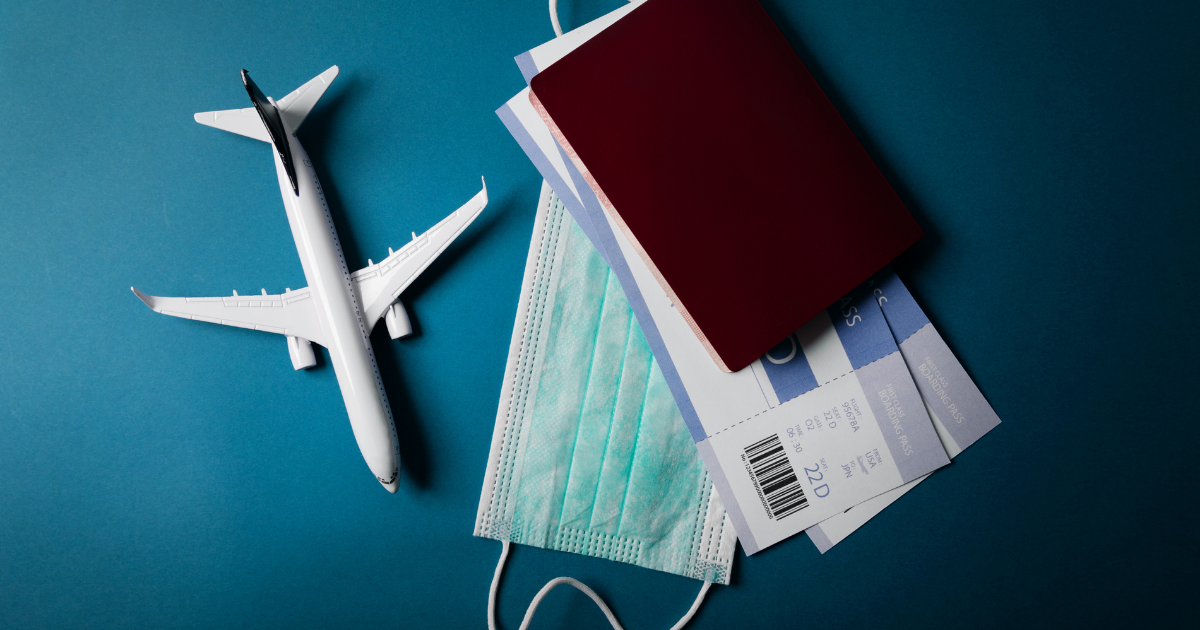Covid-19 has changed the way we all look at so many aspects of life. If you are reading this blog post (and thank you if you are) then you are particularly interested in the way travel law has been evolving and responding to the many challenges thrown at us.
Every week seems to bring a new question around what the obligations are on a package travel organiser in particular (although not always just organisers – we receive plenty of requests for advice from Agents, Suppliers, Travel Management Companies and all kinds of other travel businesses). As the travelling public and travel businesses all continue to move back towards how things were in 2019, the various challenges continue to present legal considerations that can be treated in line with historical thinking and practice, but also raise situations where the issues seem brand new and require more, shall we say, mental flexibility.

Regulations 11 & 12 – Now “Go To” Regulations
For instance, one of the classic considerations when travel is under threat is whether there is a right for travellers to have an alternative package or, failing that, to cancel free of charge. Regulation 11 of The Package Travel and Linked Travel Arrangements Regulations 2018 (“the Regulations”) is usually the first stop here and in our experience the industry is now well versed in assessing whether the package is still capable of being performed either fully or partially and making the right call on how to proceed. Regulation 12 has been much talked about in recent years given it has the potential to allow travellers to make “the call” over whether they can cancel free of charge, but in practice the right to do so is very restricted and few consumers have been able to successfully do so.
Other, Much Talked About Issues Since 2019…
COVID-19 has brought a new dimension to all of this – usually around scenarios where the travel services are still performable, but potential barriers exist due to COVID, specifically. Vaccination status, proof of current health, differing effects of citizenships or passports and many more issues all cloud the waters, and that is before the specifics of the customer booking make-up come into play (after all, travel for an individual business person may be easier or more palatable to the individual as opposed to the same person travelling as a family with young children etc…)
Another much-talked-about scenario has been where travellers contract COVID-19 after the travel services had commenced, or perhaps shortly after their return. The question has always been whether an organiser can be liable for causing, or allowing a traveller to contract COVID. Common wisdom has always been that such claims would be almost impossible to bring – absent some obviously clear breach of health & safety measures on the part of suppliers. The points of potential contraction are just too many, and the incubation periods too long. Proving a breach of contract or negligence and then the associated causation is going to be hard, albeit not impossible at least in theory. For what it is worth, we have seen many potential cases, but none that have convinced us there is any chance of a claimant being successful, and so far the Claimants have been persuaded that is the case also!
An Example Of The Number Of Issues That Can Arise
However, travellers contracting COVID mid-provision of travel services is still proving problematic. Take for instance a UK, solo traveller on a 10-day land tour abroad. Said traveller starts feeling a bit down on day 3 and takes a self-administered lateral flow test. Sure enough, it comes up positive. Now, the traveller knows and accepts that this is nothing to do with their tour operator – but what to do? UK rules are currently that the traveller would not have to self-isolate whilst in the UK and could, actually go about their business. Let us assume that the rules in the countries comprising the tour destinations are the same. However, the traveller decides that with the benefit of other travellers in mind they will self-isolate and stay in their current hotel room, at their own cost, for the remainder of the tour. This can lead to any number of questions – let us just consider just some:
- Is the Organiser obliged to provide a refund for the unused part of the tour? Clearly not – they are able to provide the travel services in full. In our example, the customer understands this.
- Who has to pay for the hotel nights not included in the tour cost? Our example customer here was perhaps due to stay in their current hotel for, say, 2 nights – but will now be there for, say, 7 nights. Regulation 18 provides for an Organiser to provide assistance to a traveller in difficulty, but that does not extend to payment, rather simply facilitating a way forward – using contacts and booking systems, perhaps. (There is also the 3 night obligation under Regulation 15(14), although when and where that is to be engaged still spurs debate in travel law academia)
- What of travel insurance? Let’s say the customer has some in our example, but will they engage? As always, the wording of the policy is all important, but at Travlaw Towers we have heard from our clients that insurers are not always as accommodating as one might expect, with one insurer in pretty much this exact scenario refusing to cover the customer because they incurred a liability they need not do by taking the lateral flow and exposing the positive result! That seems somewhat odd thinking which would leave the insurer open to challenge, but the facts are important. Also worth bearing in mind that many destinations now require “appropriate” travel insurance before letting tourists enter.
- What would the Organiser’s obligations be if our example customer decided to carry on with the tour irrespective of the positive result? Here matters become more problematic. The Organiser has a duty of care to all of the customers on the tour, as well as any tour leaders etc… In “normal” situations a customer having a cold, or even bad cold, would not necessarily require any special consideration – but COVID-19 is still a condition which triggers very strong emotions and reactions, and can demonstrably be said to have potential impacts which can be significant, and in some cases life threatening.
- Let us assume that the situation is slightly different, and the customer was due to return home on a flight in only a few days, and decides they will do that no-matter-what (i.e. whilst still presumably showing symptoms and testing positive). With knowledge of the illness, does the Organiser have an obligation to tell the airline? There is nothing substantive to point to here that confirms an absolute obligation, and it will ultimately come down to a business decision as to whether to notify the supplier or not.
There are so many other potential issues that we have advised substantively on and where Travlaw remain at the cutting edge of thought leadership in travel law and within the industry. Ask us about the seemingly fast coming divergence between EU states on how their Courts consider the “Flicker of hope” test (as we know it in the UK), or how UK based travel companies can approach the impact of Foreign & Commonwealth Development Office travel advice going forward or indeed anything else that might be relevant to your business.
As the travel & leisure industry gets back to doing what it does best, we continue to work through issues to make sure that both travel businesses and consumers have the clarity on the law they need.

Matt Gatenby is Senior Partner at Travlaw – by all means reach out for a chat on any of this.
or
01132 580033.
This article was originally published on: 21 March 2022



